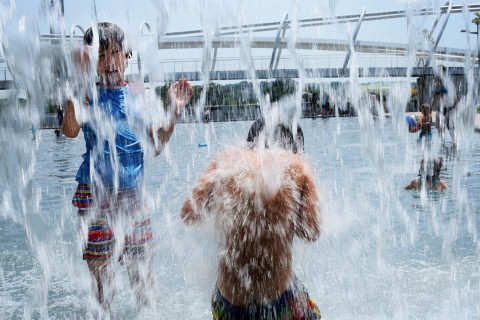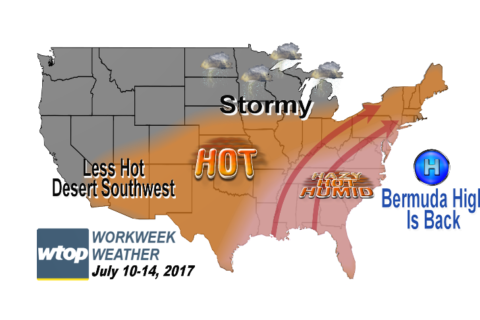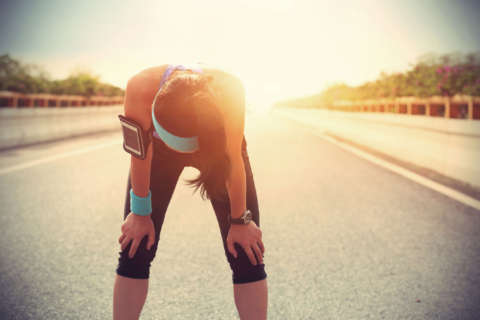WASHINGTON — Going outside? The D.C. area is experiencing a heat wave that doctors want you to take seriously.
“It can be lethal — people die of heat illness,” said Dr. Jeffrey Dubin, chair of emergency medicine at MedStar Washington Hospital Center. “It’s certainly something we should be talking about.”
In extreme heat, you can get so hot that even being well hydrated won’t help.
“Certainly drinking fluids helps you prevent heat exhaustion — which is [when] people can get dehydrated and have muscle cramps from being out in the heat too much,” he said. “But, drinking a lot of water isn’t going to stop you from suffering heat stroke.”
Heat stroke is a medical emergency when your body temperature reaches 103 degrees or higher and can’t cool down.
“It causes you to have some, what we call, mental status changes,” Dubin said. “You can have confusion and you can pass out, get comatose and die from that.”
Warning signs of heat stroke, from the Centers for Disease Control and Prevention include:
- Body temperature of 103 degrees or higher
- Dry, hot, red or damp skin
- Feeling confused
- Headache
- Feeling dizzy
- Losing consciousness
In cases of heat stroke, the CDC advises:
- Call 911 right away
- Move the person to a cooler place
- Do not give the person anything to drink
- Try lowering body temperature with cool cloths or a cool bath
To avoid developing heat-related illness, Dubin recommends listening to your body.
“If your body is telling you you’re not feeling right — you’re feeling dizzy, lightheaded, nauseous, muscle cramps, really fatigued, thirsty — it’s time to take a break and go somewhere cool and drink some fluids,” Dubin said.
If you can, avoid going back outside or wait until feeling better before returning to the heat.
“If you have to be outside, go slowly,” Dubin said. “Don’t race.”
What you wear can help beat the heat. Dubin recommends a hat and loosefitting, cotton clothing in light colors that will reflect sunlight.








